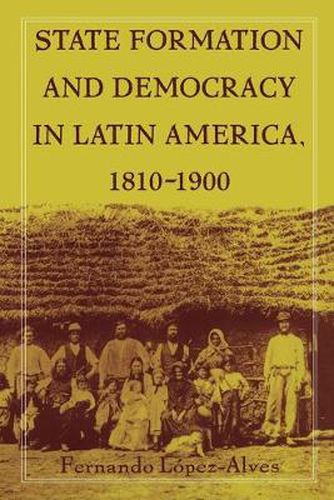Readings Newsletter
Become a Readings Member to make your shopping experience even easier.
Sign in or sign up for free!
You’re not far away from qualifying for FREE standard shipping within Australia
You’ve qualified for FREE standard shipping within Australia
The cart is loading…






Despite a shared colonial past, South American nations experienced different patterns of conflict in the 19th century. These differences led to the creation of a variety of states and regimes, from authoritarian military oligarchies to popular democracies. Using a rigorous logic of comparison, Fernando Lopez-Alves explores the roots of state building in five countries and explains why the political systems of these early post-independent societies were prone to militarism, corporatism, or liberal democracy. Breaking with traditional economic analyses of South American development, Lopez-Alves argues that civil-military relations lay at the core of state building. By comparing three countries in particular -Uruguay, Colombia and Argentina - during an intense phase of state and regime formation, he shows how war and the collective action of the rural poor contributed to the construction of central armies, the rise of new social classes, and the emergence of civilian organizations. He also examines characteristics unique to each country’s war-formed culture and discusses how coalitions were built during this period. The volume includes examples from Paraguay and Venezuela and references to state formation in Europe, the USA, Asia and the Middle East.
$9.00 standard shipping within Australia
FREE standard shipping within Australia for orders over $100.00
Express & International shipping calculated at checkout
Despite a shared colonial past, South American nations experienced different patterns of conflict in the 19th century. These differences led to the creation of a variety of states and regimes, from authoritarian military oligarchies to popular democracies. Using a rigorous logic of comparison, Fernando Lopez-Alves explores the roots of state building in five countries and explains why the political systems of these early post-independent societies were prone to militarism, corporatism, or liberal democracy. Breaking with traditional economic analyses of South American development, Lopez-Alves argues that civil-military relations lay at the core of state building. By comparing three countries in particular -Uruguay, Colombia and Argentina - during an intense phase of state and regime formation, he shows how war and the collective action of the rural poor contributed to the construction of central armies, the rise of new social classes, and the emergence of civilian organizations. He also examines characteristics unique to each country’s war-formed culture and discusses how coalitions were built during this period. The volume includes examples from Paraguay and Venezuela and references to state formation in Europe, the USA, Asia and the Middle East.